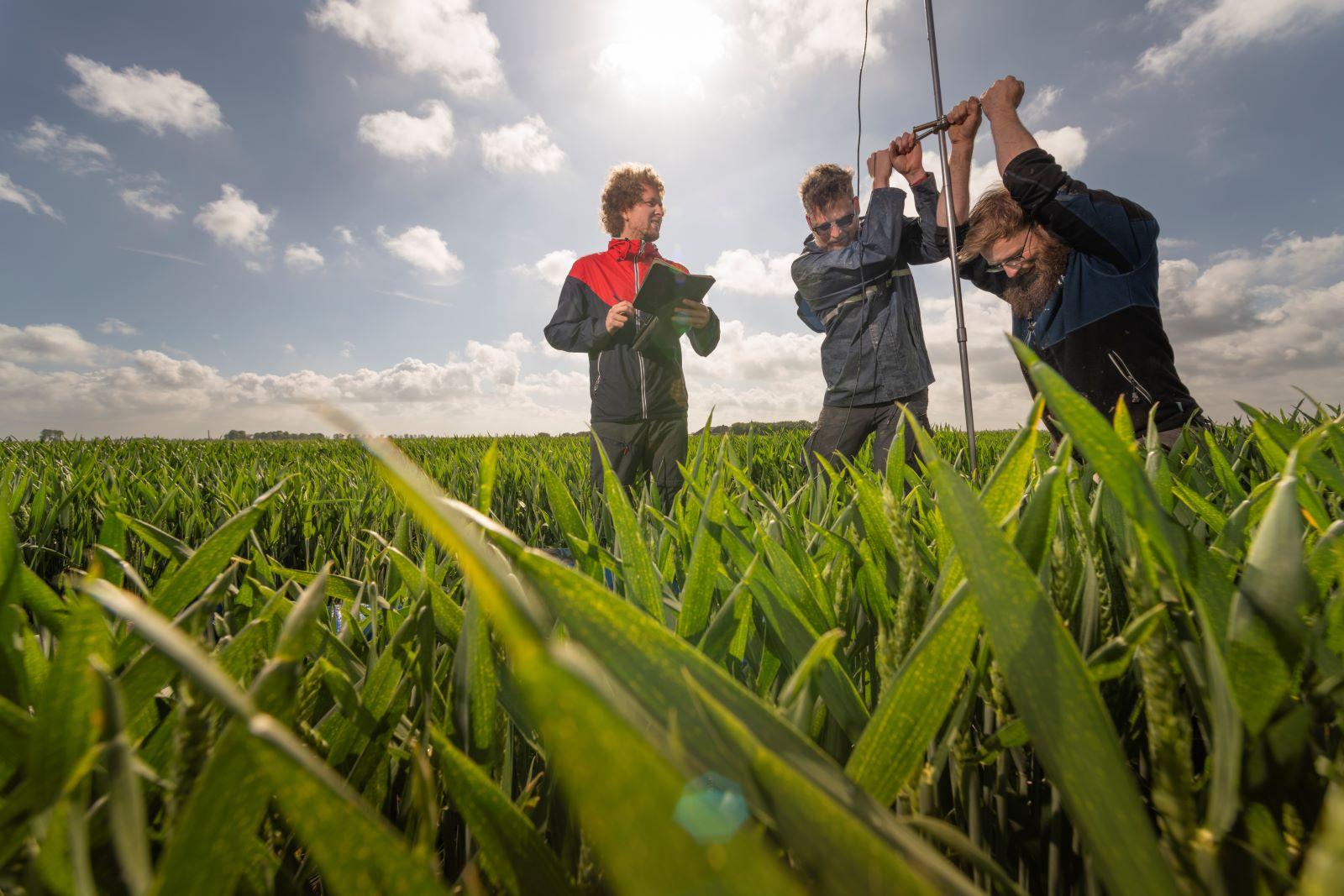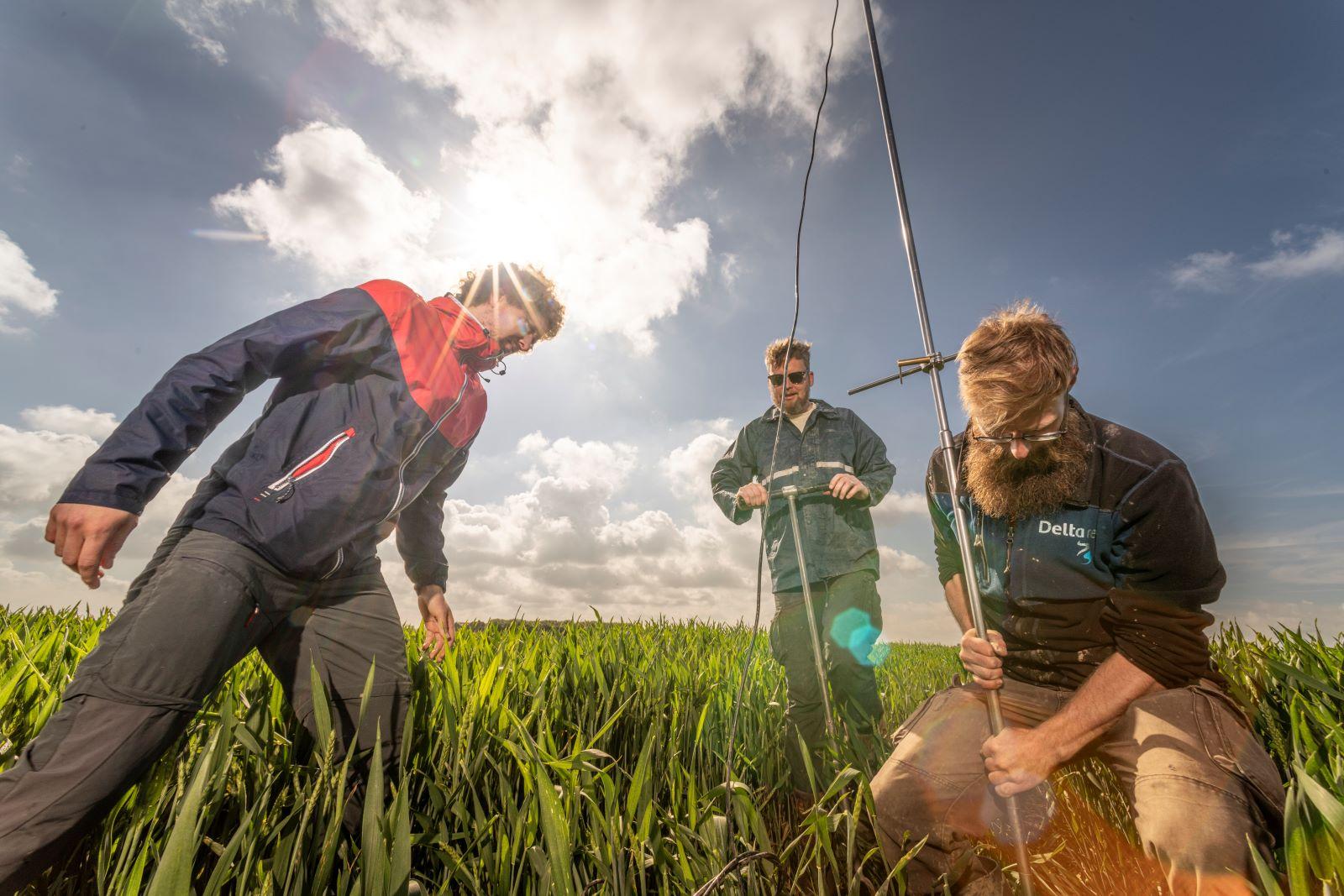Innovative drainage for freshwater supply in Zeeland
Agriculture in the Dutch province of Zeeland is threatened by drought and salinisation. Farmers on Schouwen-Duiveland are struggling with limited freshwater resources and rising saltwater pressure. To meet this challenge, Deltares is working with farmers and governments on an innovative drainage solution. This system helps retain rainwater and separates it from salt water, allowing fields to be better watered during dry periods.

Drought and salinisation on Schouwen-Duiveland
Peninsula Schouwen-Duiveland in Zeeland is completely surrounded by salt water, making it difficult to supply agricultural land with sufficient fresh water. This area has no natural supply of fresh water and is completely dependent on rain. As a result, the region often struggles with dry, saline soils, in which many crops grow poorly. Farmers are therefore forced to harvest less or switch to different, salt-tolerant, crops. The vulnerability of the region became painfully clear during the summer of 2018, when crops had to be saved by hauling trucks full of fresh water to Zeeland. Teun van Woerkom, water quality expert at Deltares, stresses, "This is not a problem of the future, but something that society is already very much affected by now." To address these problems, Deltares launched the ‘Demonstration Project Innovative Drainage’ in collaboration with farmers and governments.
This is not a problem of the future, but something that society is already very much affected by now.
Teun van Woerkom, expert waterkwaliteit
Dual drainage system
The key to this project lies in the dual drainage system being tested at two sites. In a traditional drainage system, water is collected in tubes with holes and drained to ditches. In this new project, however, two drainage systems are installed at different depths: an upper tube for fresh water and a lower tube for salt water. The upper tube collects fresh rainwater, which can be reused to irrigate crops. The lower tube regulates the water table in the deeper layers of the soil, optimising moisture management and preventing salinisation. This system ensures that fresh water remains available for agriculture, while at the same time regulating soil moisture.
This double drainage system is one of the key innovations within ‘Living Lab Schouwen-Duiveland’, in which Deltares is investigating new, smart ways of water management together with farmers and governments. Another key component of this project is at a third location and is a level-controlled drainage system, which collects rainwater and separates it from saline seepage water. At this location, the drainage pipe does lie at one depth only, but with the ability to set the depth to which the groundwater is drained. This allows the collected freshwater to be used for irrigation even during dry periods, significantly improving the freshwater supply in the region.

Practice results and cooperation
Fieldwork, carried out by researchers like Van Woerkom, is crucial to the project's success. They use rhizons and prods to measure groundwater conductivity, which helps to better understand the fresh-salt distribution in the soil. This provides insights to further optimise the system and make it applicable in other parts of Zeeland. Initial results are hopeful: innovative double drainage systems can help increase freshwater availability, even in places where it was previously thought that nothing would be possible.
Monitoring the system will provide practical information on operation and efficiency, on the basis of which guidelines for construction, management and maintenance can be developed. Deltares is working with the province of Zeeland, the municipality of Schouwen-Duiveland and European partners to realise this solution. The project contributes to future-proofing agriculture in saline areas.





